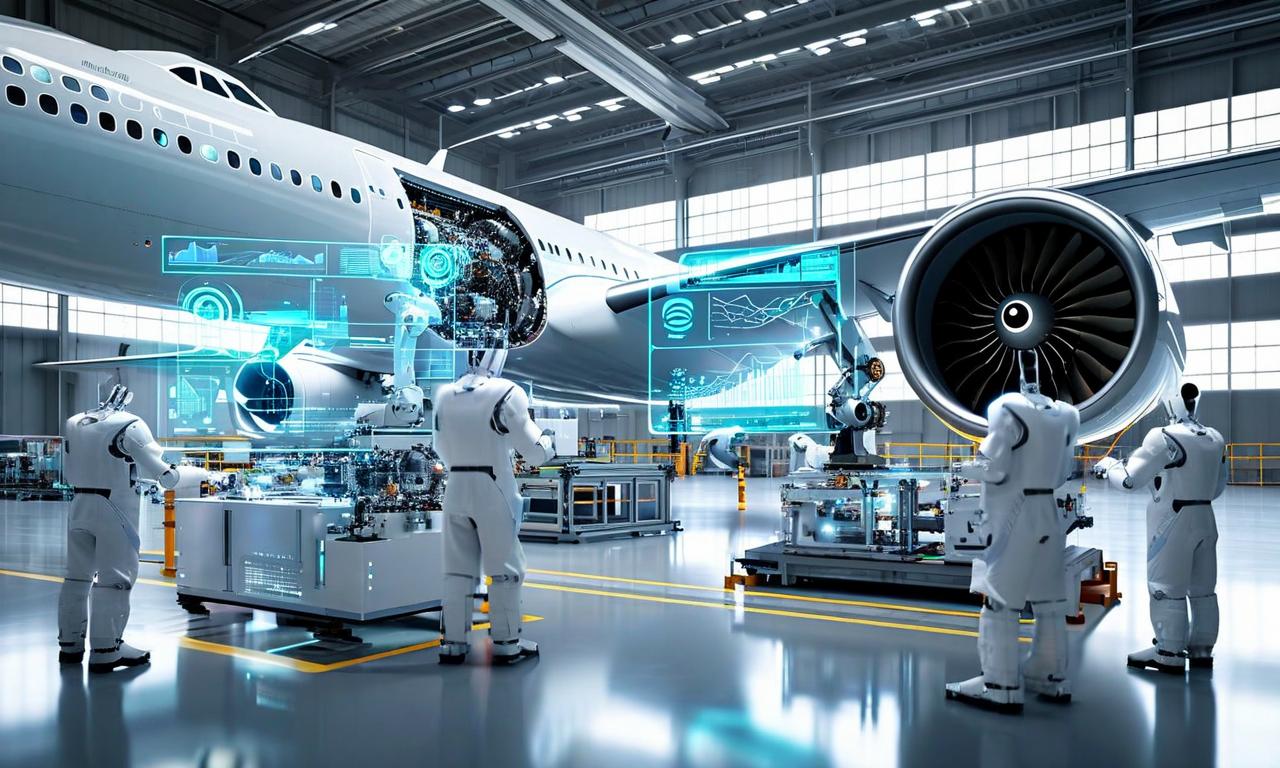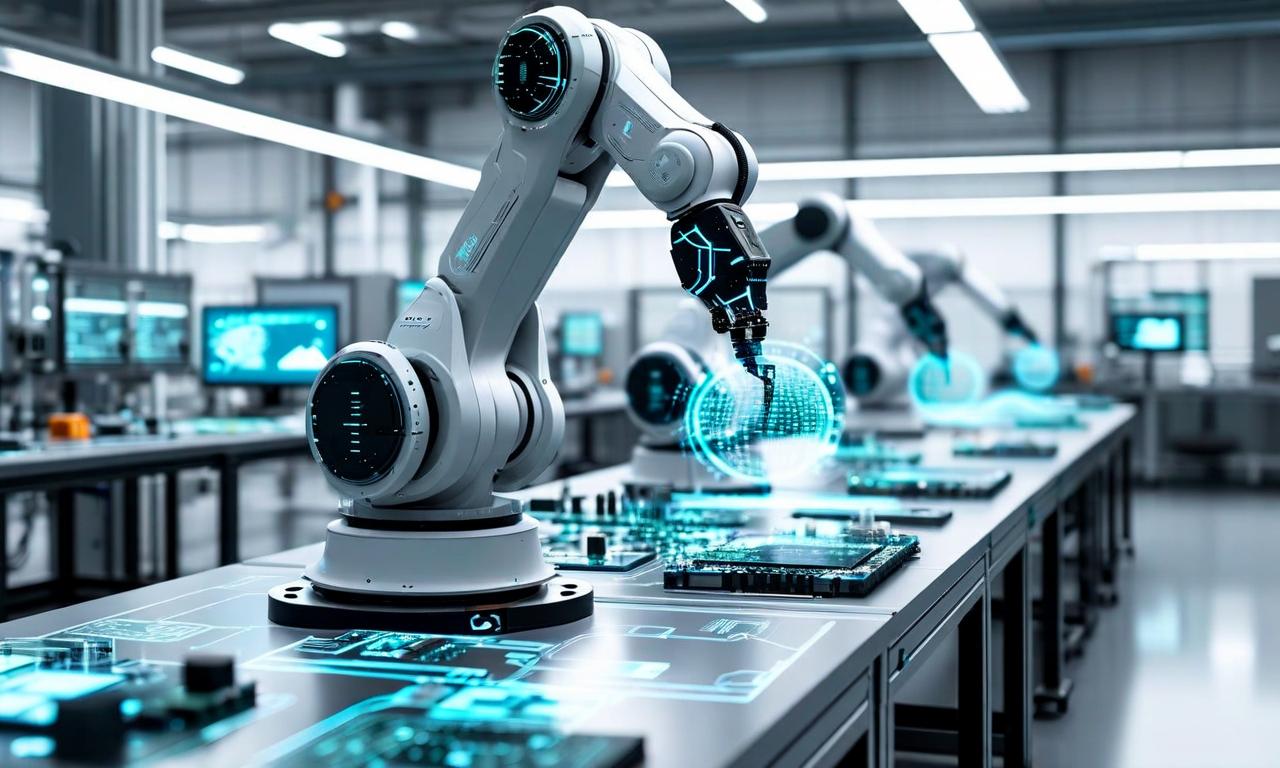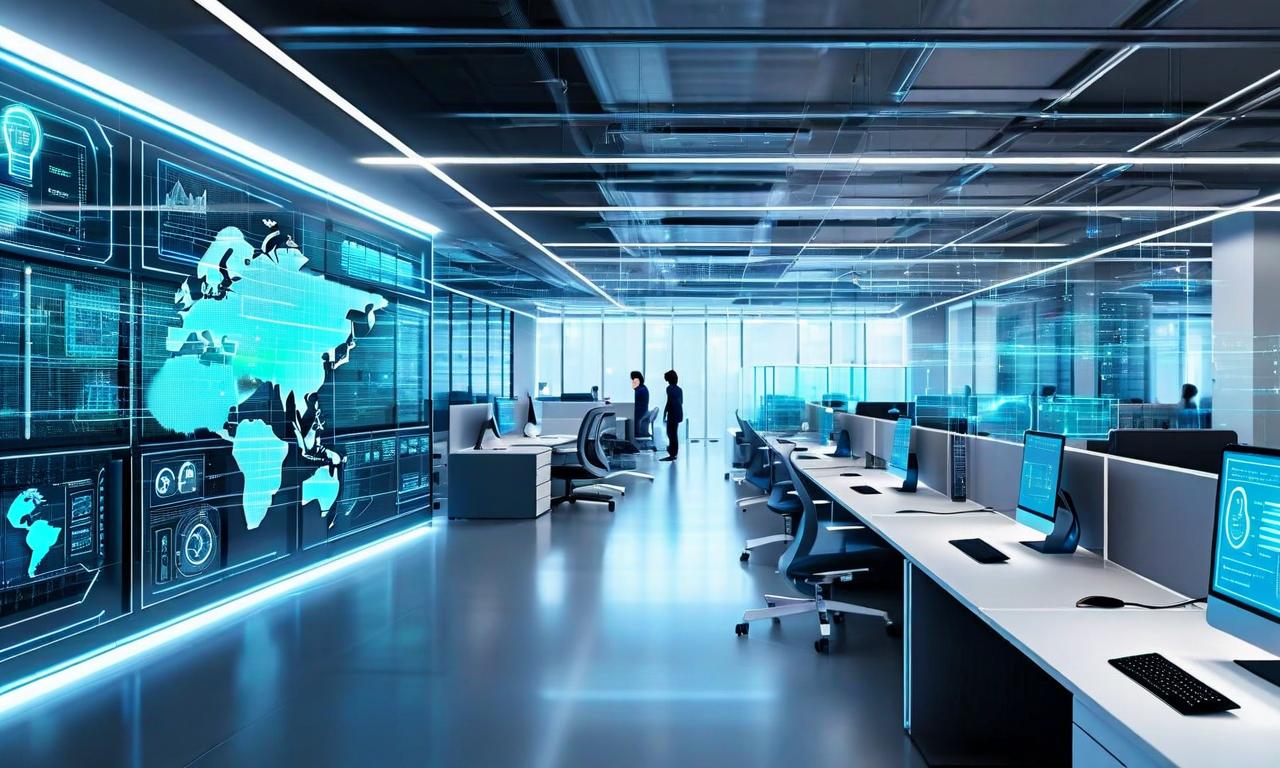TCS Study: AI and Digital Twins Set to Revolutionize Aerospace Sector by 2035
TCS has released a study on the future of the aerospace industry, highlighting the transformative impact of AI and digital twin technologies by 2035. Key findings include the emergence of hybrid human-AI manufacturing processes, significant advancements in Maintenance, Repair, and Operations (MRO) technologies, and ongoing digital transformation in the sector. The study suggests these changes will have major implications for manufacturers, maintenance providers, airlines, operators, and technology providers in the aerospace industry.

*this image is generated using AI for illustrative purposes only.
Tata Consultancy Services (TCS), a leading global IT services, consulting, and business solutions organization, has released a groundbreaking study that sheds light on the future of the aerospace industry. The research highlights the transformative impact of artificial intelligence (AI) and digital twin technologies on the sector, projecting significant changes by 2035.
Key Findings of the TCS Study
The study by TCS reveals several important insights into the future of the aerospace industry:
AI and Digital Twins at the Forefront: The research emphasizes that AI and digital twin technologies will play a pivotal role in reshaping the aerospace sector over the next decade.
Hybrid Human-AI Manufacturing: One of the most notable predictions is the emergence of hybrid human-AI manufacturing processes. This integration of human expertise with AI capabilities is expected to revolutionize production methods in the aerospace industry.
Advancements in MRO Technologies: The study forecasts significant progress in Maintenance, Repair, and Operations (MRO) technologies. These advancements are likely to enhance efficiency, reduce downtime, and improve overall operational effectiveness in the aerospace sector.
Digital Transformation: TCS's research underscores the ongoing digital transformation in the aerospace industry, with AI and digital twins serving as key drivers of this change.
Implications for the Aerospace Industry
The findings of this study have far-reaching implications for various stakeholders in the aerospace sector:
Manufacturers
Aerospace manufacturers may need to adapt their production processes to incorporate hybrid human-AI systems, potentially leading to increased efficiency and innovation.
Maintenance Providers
Companies involved in aircraft maintenance and repair could see a shift towards more predictive and efficient MRO practices, leveraging AI and digital twin technologies.
Airlines and Operators
The advancements in MRO technologies could result in reduced aircraft downtime and improved operational reliability for airlines and other aerospace operators.
Technology Providers
Firms specializing in AI and digital twin technologies may find increasing opportunities in the aerospace sector as the industry embraces these innovations.
TCS's study provides valuable insights into the future trajectory of the aerospace industry, highlighting the critical role that emerging technologies will play in shaping the sector. As the industry moves towards 2035, stakeholders across the value chain will likely need to prepare for and adapt to these technological advancements to remain competitive in an evolving landscape.



































